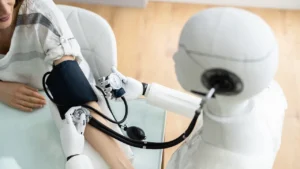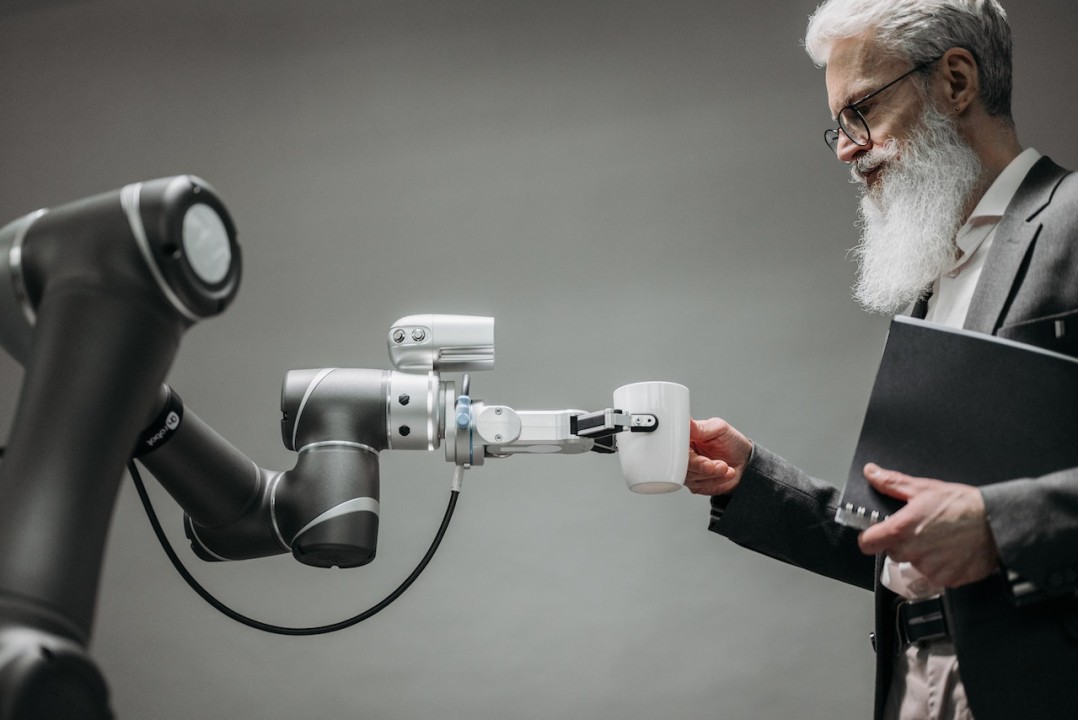By Chijioke Iremeka
The concerns raised by public health physicians regarding the reliance on artificial intelligence (AI) in medical practice are quite significant. They highlight several key points:
- Lack of Personalization: AI systems can analyze data and provide insights quickly, but they do not have the capability to fully understand the complexities of individual patients. Factors such as medical history, allergies, and psychological nuances are critical in determining the most effective treatment, which AI may overlook.
- Algorithmic Bias: There are concerns that AI systems may exhibit biases based on the data they are trained on. This can lead to unequal care, where certain groups may not receive the appropriate medical attention they need, further exacerbating health disparities.
- Supplementary Role of AI: The physicians advocate for AI to be used as a supplementary tool rather than a replacement for human judgment. Human healthcare providers possess the expertise and experience to assess and address the nuanced needs of their patients, which AI cannot replicate.
- Risks of Self-Diagnosis: The call for caution against self-diagnosis and medical prescriptions based on AI highlights the potential dangers associated with patients relying on technology without professional oversight. Such practices can lead to misdiagnosis or inappropriate treatments, putting patients’ health at risk. The Health Promotion and Education Alumni Association, Ibadan College of Medicine (HPEAAICM), emphasized the importance of caution when using artificial intelligence (AI) for healthcare, warning that relying on AI for self-diagnosis and medical prescriptions could be harmful. They pointed out that while AI has its place in healthcare, it lacks the ability to consider a patient’s full medical history, which could lead to inappropriate treatments.

Dr. Bright Orji, the president of the association, spoke at their Annual General Meeting and Scientific Conference, underscoring the theme “Artificial Intelligence and Innovations in Public Health.” He noted the need for moderation in the use of AI in healthcare, particularly as social media and other digital platforms are often misused, leading to the spread of misinformation. He called for greater awareness to ensure that people turn to qualified professionals for medical advice rather than solely relying on online information or AI tools.
The concerns raised by experts like Professor Tanimola Akande highlight some critical limitations of AI in healthcare, particularly when it comes to tasks like drug prescription and diagnosis. While AI can analyze data and provide insights, it lacks the nuanced judgment of human professionals, especially in areas that require physical examination and the interpretation of complex, contextual factors.
Doctors consider a range of variables beyond symptoms alone, such as subtle physical cues, patient history, and the results of lab tests, which AI might struggle to interpret with the same depth. The warning emphasizes that AI should complement, not replace, human expertise, ensuring that public health consumers understand the potential risks of over-reliance on technology. It’s also a reminder that AI might “hallucinate,” generating plausible but incorrect information, making it crucial to approach AI-generated recommendations with caution.
Ultimately, while AI can be a valuable tool, human oversight remains indispensable in healthcare.

The statements from Prof. Tanimola Akande and Prof. Emmanuel Otolorin highlight the limitations and concerns regarding the use of artificial intelligence (AI) in healthcare, particularly in providing individualized treatment. While acknowledging that AI can provide useful information to assist in patient management, they emphasize that AI should not replace physicians.
Akande stresses that reliance on AI for treatment is inappropriate and potentially risky, advocating for patients to seek care from well-manned health facilities and consult doctors for proper diagnosis and treatment. He highlights the need for health education to inform the public about the limitations of AI in healthcare. This is crucial to prevent individuals from fully relying on AI without understanding the potential risks.
Prof. Otolorin corroborates this by acknowledging AI’s potential but warns of the risk of AI “hallucinations”—a phenomenon where AI generates incorrect or non-existent information. This reinforces the idea that, while AI is a valuable tool, it should be used cautiously and under the guidance of healthcare professionals to ensure safety and accuracy in medical decision-making.
Both experts emphasize the importance of a balanced approach where AI complements, rather than replaces, human expertise in medicine.
The speaker is addressing concerns about the misuse of AI in healthcare, emphasizing that AI tools should not replace trained healthcare professionals. He highlights the potential dangers of AI “hallucinations,” where the system could generate incorrect or non-existent medical information, such as fake medications and their side effects. The key takeaway is that only those who are experts in the medical field should use AI tools, and even then, they must verify the output rather than rely on it blindly.
The Nigeria Medical and Dental Council is positioned as a regulatory body that will hold healthcare practitioners accountable for errors, regardless of whether AI is involved. The speaker makes it clear that if a healthcare worker makes a mistake, blaming AI will not shield them from consequences.
Additionally, the speaker, Otolorin, warns about the growing issue of unqualified individuals (quacks) using AI, and he stresses the need for patients to be cautious. He also criticizes people for relying on internet searches like Google for medical advice, particularly in countries where drugs can be bought without prescriptions, emphasizing the risks involved.
In summary, while AI has the potential to enhance healthcare delivery, it is crucial that it be integrated thoughtfully and used in conjunction with the expertise of healthcare professionals to ensure safe and effective patient care.
Click here to join our Telegram Channel

